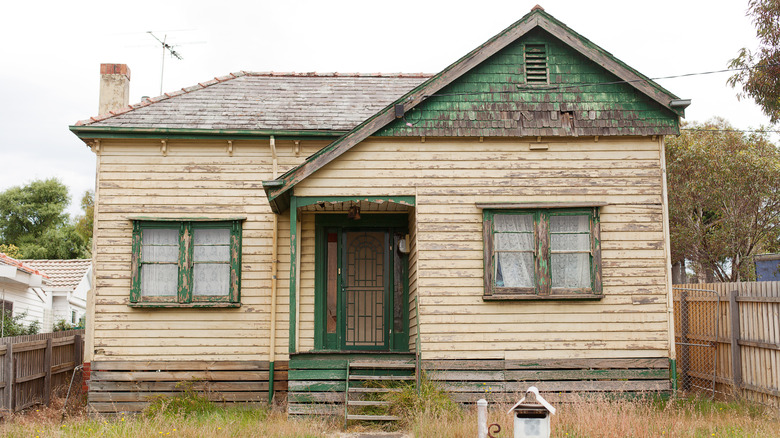Abandoned House In Your Neighborhood? Here's What You Can Do About It
Every neighborhood has the one house that is a complete eyesore in the area, lowering home values and causing safety issues for neighbors. And in many cases, these are abandoned homes. While some once-beautiful abandoned homes that have been reclaimed by nature are whimsical, the average example is far from charming. Telltale signs include posted notices on the door, boarded up windows, and an overgrown lawn. Does this sound eerily familiar to a property on your block? If you have an abandoned house in your neighborhood, you can take action by contacting your local officials, property investors, or the bank that owns the house to get the situation addressed.
Whatever you do, don't enter the property. You will be trespassing in a potentially dangerous area. Before contacting local officials, try to determine who the property owner is by looking through property records. These public databases will typically tell you the owner and their address. Sometimes a conversation with the homeowner can help everyone come to a better solution while avoiding the sometimes long and tedious process of working with local governments or investment properties. This can also save you and your neighbors the trouble of pitching in to maintain the outside of the home, or even offering to purchase the home. If you can't contact the owner, you should take the next step—reaching out to your local government.
Report issues with vacant homes to officials
When you can't resolve the issue of an abandoned eye-sore of a home with the homeowner, talk to your local or community officials and make a formal complaint. You'll need to provide photo or video evidence of the issues with the abandoned or unfinished property. For example, if you see wildlife, mold, or squatter issues, snap some photos from the public right of way and submit a complaint. Just as specific types of home renovations require permits, every municipality has building codes that all homes have to follow, which often cover common issues such as unbroken windows and doors. If the empty house violates these regulations, local officials should be made aware. In many cases, officials should be able to easily pull up the property details in a database, finding the current owner and sending out fines if necessary to encourage the owner to remedy the situation. You can also attend a town hall meeting to discuss the problem.
Working with government can be a complicated process, especially if none of the problems are on the home's exterior. If the property has windows, doors, a regularly maintained yard and exterior, no signs of animal or squatter activity on the outside, and the current owner still pays property taxes, in some cases, your local code enforcers won't necessarily be able to do anything. But don't give up. Property investors or the bank could still help.
Reach out to the investor or bank that owns the property
When local government can't help, property investors or the bank can sometimes step in. Property or real estate investors and flippers see the potential that most don't, as was the case with the abandoned California home with no bedrooms that sold for millions. As long as the abandoned house has good bones, many individuals may show interest in taking on the property. It may take some time to find the right person, but many of them can take an ugly, outdated home and turn it into a show-stopping, high-value property. In some cases, even your surrounding community can become investors, taking the unfinished or abandoned place and transforming it into a public spot, whether it's a garden or a community center.
Some of these vacant, dilapidated homes are owned by the bank. If a bank owns the house because it foreclosed, it is most likely in the process of getting fixed and listed on the market, which can take time. Many banks are are willing to work with communities to expedite the process, especially if the empty home is a hotbed for crime and vandalism. They may also give you options or advice if you notice the eyesore is negatively impacting your property value.


